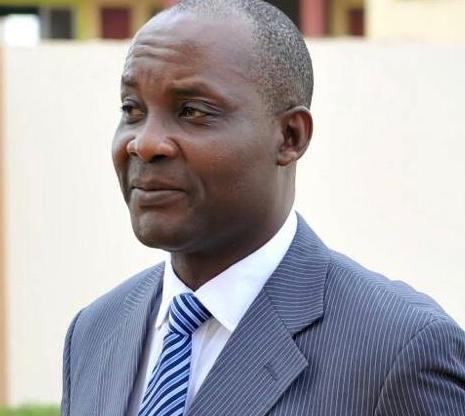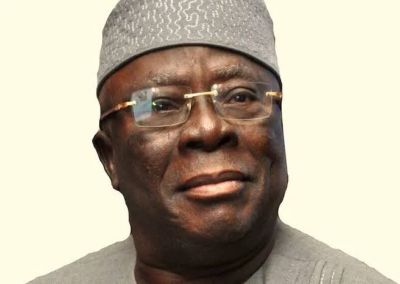Super User
Why I’m leading a revolution against APC, PDP – Oby Ezekwesili
Kaduna LG Poll: Commission tests e-voting machines in mock election
Still on the spiritual side of Aso Villa - Sina Kawonise
Since the publication of Reuben Abati’s piece on the “Spiritual side of Aso Villa” on October 14, I have taken time to follow the reactions of key personalities to the article. Quite significantly, a former Minister of Aviation and presidential spokesman, Femi Fani-Kayode, a predecessor of Abati in the office of the Special Adviser to the President on Media and Publicity, Segun Adeniyi, and his successor, Femi Adesina, have taken different positions on the very crucial matter articulated by Abati.
Besides these insiders in the Aso Villa matter, Abimbola Adelakun of The PUNCH, also wrote a rejoinder wherein she wondered if Abati needed help. Adelakun’s piece can be easily dealt with in that she committed the social scientific error of ranking a philosophical/theoretical paradigm above another. A confessed agnostic, Adelakun committed the error of declaring as irrational and superstitious the existential reality of the spiritual experience of the theistic Abati. Having confessed that “some of us have struggled to reconcile our agnosticism with curious phenomena for which we could not find immediate answers in scientifically tested knowledge”, Adelakun should have retained herself in the arena of her competence. There is a whole realm beyond the reach of science and empiricism as we know them today.
The empiricist is no more rational or saner than the rationalist philosopher/theorist or vice versa. To suggest that Abati needed help just because he narrated an experience which Adelakun’s empiricist mind could not relate with is an offence to the basic tenets of social science precepts which anyone who underwent sound undergraduate training in any of the social sciences mustn’t commit.
Before attending to the viewpoints of the Aso Villa gurus, I need to make some clarifications just like Adesina did in his rejoinder to Abati.
I’m 54 years old. Like Abati, I taught in the university (I put in seven years). Like Adeniyi, Adesina and Abati, I have practised journalism for about 30 years, three out of which I was Managing Director/Editor-in-Chief of a national newspaper. For eight years, like the two Femis, Adeniyi and Abati, I worked for governments and closely with two governors, within which I served as a state commissioner. For 19 years till date, I’ve been involved in local and international businesses. And like all the Villa writers, I’m a Christian. But unlike all the aforementioned, I contested to be governor of Ogun State in the 2015 election.
Now, I stated the personal details above to underscore the viewpoint I’ll be advancing in this rejoinder that in my varied professional, political and economic endeavours, there is no where I have encountered grave evil forces and fetish practices and occurrences as in government and politics.
Because Fani-Kayode wholly endorsed and even amplified Abati’s narrative, there’ll be no need for me to touch on his own article.
While Abati raised the alarm that “Aso Villa is in urgent need of redemption” from forces of darkness that make many who worked therein to suffer strange ailments and commit inexplicable errors, Adeniyi and Adesina posited, while not denying that evil forces exist and may actually be in operation in the Villa, that their own experiences did not conform to Abati’s of spiritual attacks and strange ailments.
Adesina’s and Adeniyi’s central thesis is that if evil forces operate in Aso Villa, so they do in all spheres of life and human endeavours. Very true.
According to the former, “Such as is common to man…” is whatever evil occurrence that may happen to anyone in the course of their sojourn in the Villa.
Nothing in Abati’s testimony suggests that evil happens only to those in the Villa. He spoke about “degree” and “quantity”. But Adesina must know the truism that “higher levels bring higher demons”. Like Adesina and Adeniyi, my “waist below” worked throughout my journey in government and politics. And I didn’t suffer any strange ailment. For me to be insulated from the spiritual vicissitudes of government and politics here in Nigeria, I prayed and fasted “beyond measure”. Close relations and brethren in the church prayed for me without ceasing. And as much as laid in my power and the abundant grace of God, I made efforts to live a righteous life.
Besides Abati who is a close friend, I’ve heard many former functionaries of the Federal Government relate to me the pervasiveness of rituals and fetish practices. My experiences in my tour of duties in government and politics confirm them. And Adeniyi was right on point when he affirmed that “when people seek power in Nigeria, whether in the political or spiritual realms, not a few of them go for diabolical means.” This is truest for government and politics in Nigeria.
It will be unnecessary to begin to reel out all that I heard, saw and witnessed especially in the two years I actively campaigned to be governor of Ogun State.
And the reason why Government Houses across the country are so demonised is not far-fetched. The Nigerian state, like all other African states, as vividly described by the eminent political scientist, Prof. Mammoud Mamdani, is a “veritable Mount Kilimanjaro surrounded by a Lilliputian environment”. The state is the repository of the scarce resources that all crave for. Government leaders are those in the institutional positions to dispense the resources. To have access therefore becomes what the late Prof. Claude Ake described as “warfare” in which all arsenals – physical and spiritual – are deployed.
At the physical realm, why is it that Aso Villa is the most fortified spatial enclave in the country? As it is in the physical realm, so should it be in the spirit realm because of the sheer quantum of evil arrows that get shot into the place. Because of the sheer power and enormous resources reposed in government houses, it can’t be correct that the evil forces that will be operating in them would be “as is common to man”.
Yet, I do not subscribe to Abati’s tone of surrender to those evil forces. And he sounded a little funny saying that the current Aso Villa should be abandoned to overcome dark spiritual forces. A sound Christian, as Adesina correctly says, must have dominion over them and not yield an inch to them. Being acquainted with the Christian lives of Adesina and Adeniyi, I know for sure that they wouldn’t have been imperilled by those dark forces. But Adesina should tell us his activities in the realm of prayer and fasting that afford him to “sleep so soundly” and “even snore” in his apartment in the Villa. Ditto Adeniyi. I will be extremely surprised if the former is not praying and fasting more now than when he was Managing Director of The Sun newspaper and President of the Nigerian Guild of Editor. It is the same way that I’d be surprised if Adeniyi didn’t witness less spiritual tension after his exit from the Villa.
Now, I’m not suggesting that those who had “strange ailments” were not right with God; neither do I say that being right with God makes one immune from those “things that are common to man”.
Having an acute awareness of the presence and operations of dark spiritual forces, however, should never make us abandon rational and indispensable scientific means and actions that will make us overcome our development challenges. As Apostle James says, faith without works is dead. So also is anyone walking through this world without faith in the Almighty God dead even though he may be physically alive. It is for this realisation that the United States of America, in spite of its great scientific and technological advances still inscribes on its currency that “In God we trust”. The superpower has the last Thursday of every November as a national Thanksgiving Holiday. It is for the same reason that the former Head of State, Gen. Yakubu Gowon, organises prayers for this country.
- Kawonise, a former Ogun State Commissioner for Information, is Publisher, NewsScroll.
Punch, October 31, 2016
The pools staker’s world - Sina Kawonise
In memory of Thomas Sankara - Sina Kawonise
Revolution? It is certain! - Sina Kawonise
Selling your children - Sina Kawonise
2019: Senate, Reps adopt reordered sequence of election
INEC to transmit 2019 elections results through satellite
LATEST POST
- As the one-in-a-generation leader, Ayo Adebanjo goes to his final resting place - ‘Sina Kawonise
- Living out Matthew 25:31-46: Notable Christian personalities who embodied Christ’s command - ‘Sina Kawonise
- Matthew 25: 31-46: Scriptural and scientific validation of rewards for giving - ‘Sina Kawonise
- Matthew 25:31-46: Rethinking wealth ownership - ‘Sina Kawonise
- Operationalizing Matthew 25: 31-46: The call to continuous care for the needy - ‘Sina Kawonise
- The final judgment: The logic of necessary and sufficient conditions in Matthew 25:31-46 - ‘Sina Kawonise
-
The secrets of intangible wealth - Ronald Bailey
- Harry, Meghan and Marx
- Want to be wealthier? Science says marry the right person - but not for the reason you might think
- Deconstructing Tunde Bakare - Sina Kawonise










